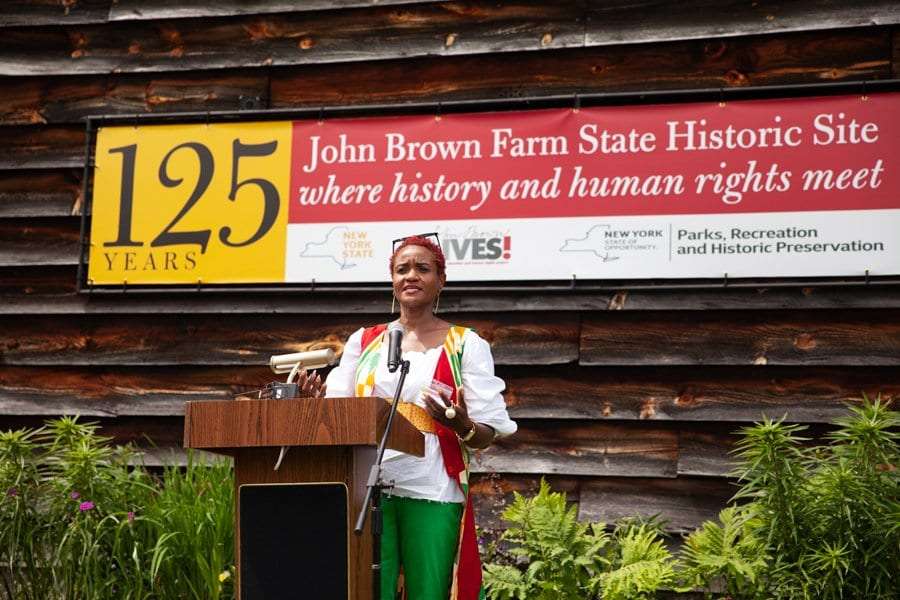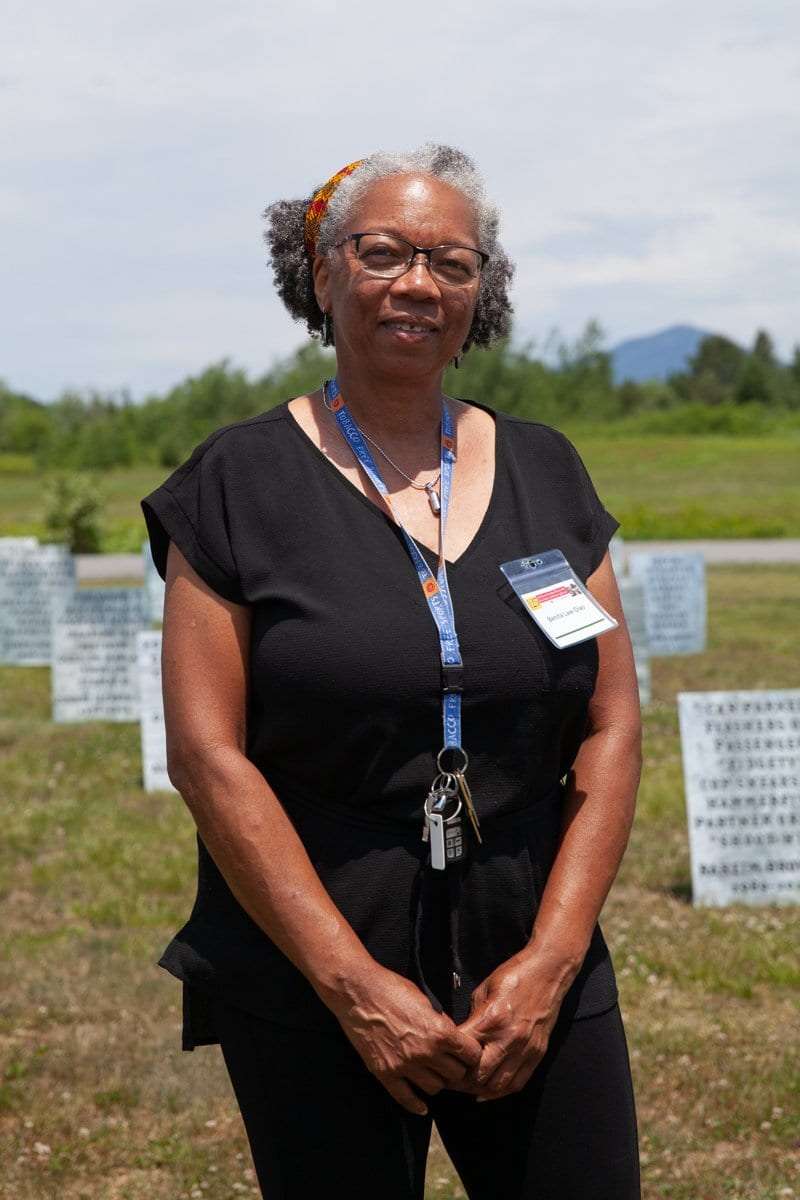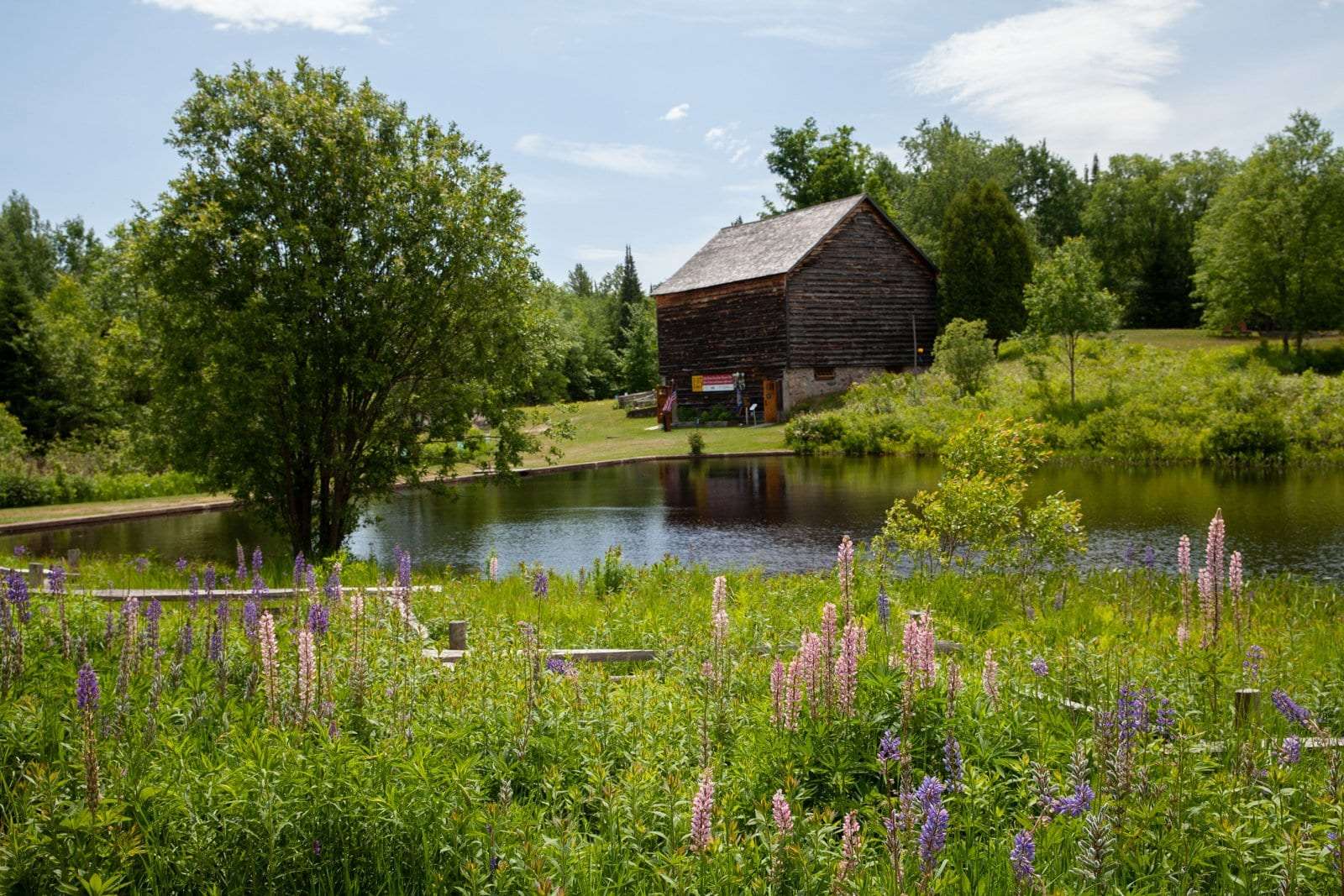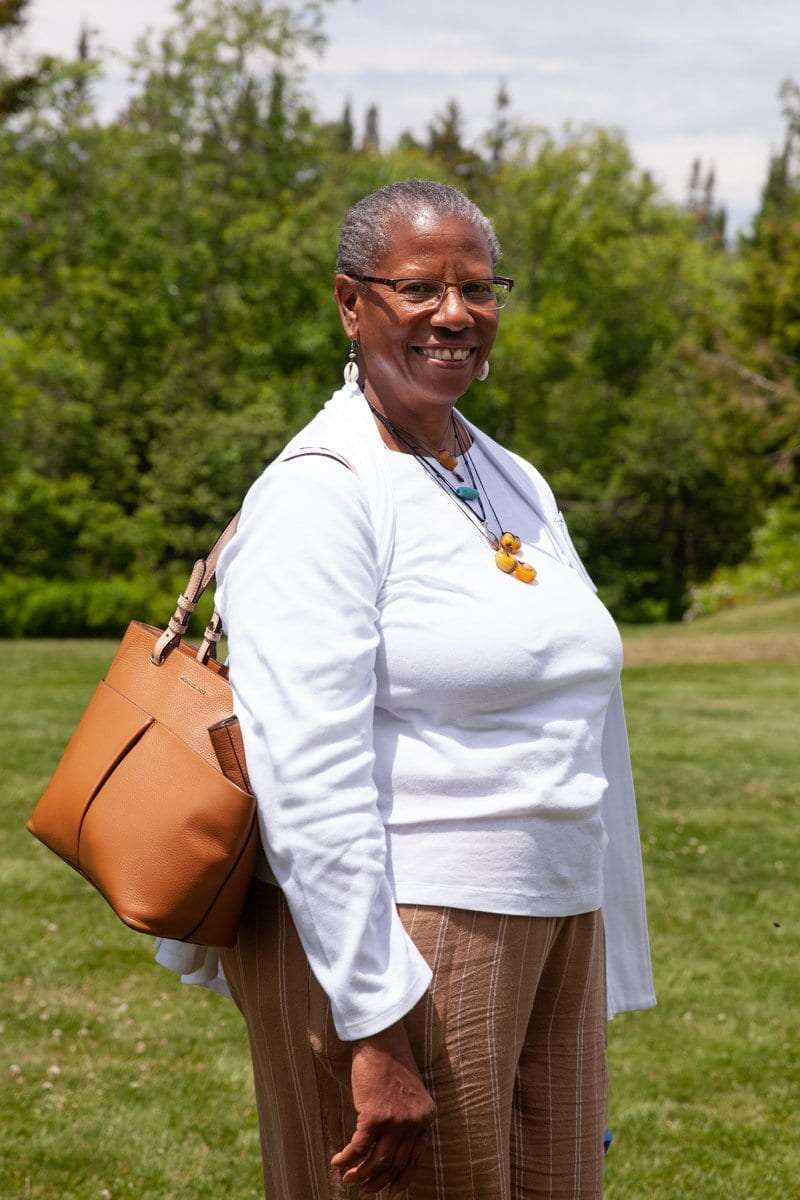
Advocates reflect on welcoming strategies at historic site anniversary and Juneteenth celebration
By Brandon Loomis
It was the mountains, woods and trails that first drew Benita Law-Diao to the Adirondack Park a few decades ago.
It didn’t matter if she wouldn’t see other Black women on the trail.
“I came to hike,” the Latham resident said, “and I fell in love.”
She has since dedicated herself to the cause of getting other people of color out where they might also fall in love with the wilderness. Some adventurers might need help getting comfortable in communities where they don’t see many Black business owners or residents, where “they don’t see us.”
Often, when connecting people to nature through her work with the nonprofit organization Outdoor Afro, her first stop is the gravesite and memorial for the executed abolitionist John Brown. There, on the outskirts of Lake Placid, they can pay tribute to Brown and others, white and Black, whose pre-Civil War raid at Harper’s Ferry sought to spark an uprising to end slavery.
It’s a reminder of those who worked for justice in this place and elsewhere, and of the work yet to be done.
“I have every right to be here,” like every other New Yorker, she told the Adirondack Explorer. “It’s mine.”

On Friday, Law-Diao joined New York State park officials and racial justice advocates in starting the Juneteenth holiday weekend by celebrating the 125th anniversary of state ownership of the John Brown Farm State Historic Site.
The anniversary of this early civil rights park fell a day before the first federally recognized Juneteeth holiday to celebrate emancipation.
“What a fortuitous coincidence,” Parks, Recreation and Historic Preservation Commissioner Erik Kulliseid told a few dozen people assembled outside the farm’s barn for an anniversary tour.
The support group John Brown Lives! planned musical and storytelling programs for the rest of the weekend, along with a Memorial Field for Black Lives bearing inscriptions that recall unjust killings.
Brown himself was a controversial figure maligned by some Americans in the 19th century, making the state’s 1896 preservation of the farm remarkable, said John Brown Lives! founder Martha Swan. He and those who fought with him struck a blow against slavery — one of the most powerful economic forces in history, Swan said. She hopes that when visitors stand at his grave, “people of conscience let that seep in.”

The state’s early embrace of the freedom fighters’ legacy is something to build upon, said Adirondack Diversity Initiative Director Nicole Hylton-Patterson. Like Law-Diao, she uses the historic site as a place to introduce people of color to the Adirondacks. In her program’s case, it has meant bringing high school and college students to consider Timbuctoo, the farm experiment that settled free Blacks in the Adirondacks and ultimately brought Brown to live there.
White and Black people worked together in a struggle for human rights, Hylton-Patterson said. “You can’t get any more deep than that.”
The ADI program intends to get students certified as wilderness guides, she said, in hopes that some will ultimately return to the Adirondacks as forest rangers who can further the sense of inclusion for other people of color. Building such connections is important to the park’s long-term sustainability as New York enters its majority-minority future, she said.
Take the park with you
Subscribe to print/digital issues of Adirondack Explorer,
delivered 7 times a year to your home and/or inbox
New Yorkers in the 21st century must understand that slavery and racism aren’t just Southern history, said Lavada Nahon, interpreter of African American History for Parks, Recreation and Historic Preservation. New York was a major slave market, she said, and Timbuctoo’s land grants were in response to the state’s restriction of Black votes through a land ownership requirement. Voting rights remain an issue nationwide, she said. “Why?”
“That memorial field represents issues that we still, as a country, need to reckon with,” Nahon said.
It’s a reckoning that Law-Diao hopes anyone who stops by Brown’s resting place will be inspired to advance. “Fight for human rights,” she said. “The man gave his life.”

"explorer" - Google News
June 19, 2021 at 08:30PM
https://ift.tt/3gEbCXV
Advancing Adirondack inclusivity at John Brown Farm - Adirondack Explorer
"explorer" - Google News
https://ift.tt/2zIjLrm
Bagikan Berita Ini














0 Response to "Advancing Adirondack inclusivity at John Brown Farm - Adirondack Explorer"
Post a Comment